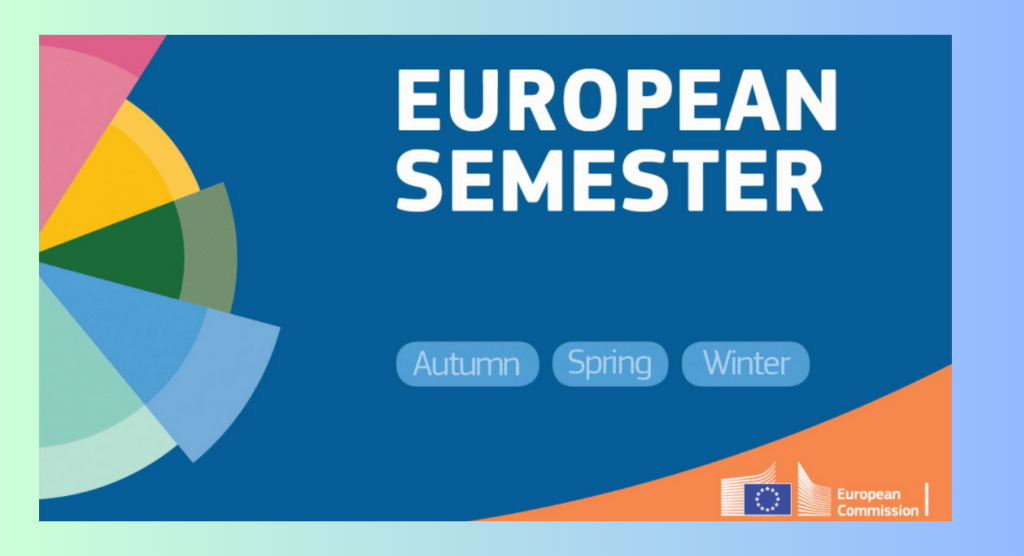Webinar on the European Semester
Published:
On 18 April 2023, ETUCE organised an interactive webinar on the European Semester, an essential process of policy coordination between European and national levels. The event aimed at providing ETUCE member organisations with a common understanding of the European Semester cycle and its functioning, to then allow education trade unions to progressively gain leverage in the policy-making process.
Trudy Kerperien, ETUCE Vice-President, emphasised the importance of the yearly cycle of economic policy coordination between the European Commission and the member states and recalled the ETUCE Position on the 2023 Autumn Package, serving as a guideline for education trade unions in their preparation of the policy priorities for the European Semester and the Recovery and Resilience Facility in the education sector.
Presenting the ETUCE Practical Guide for an Effective Involvement of Education Trade Unions in the European Semester on Education and Training. particular attention was drawn to the Education and Training Monitor framework since it presents an analysis of how education and training systems evolve across Europe. This guide contains practical information to help ETUCE member organisations engage in talks with their national governments and the European Commission on the Country Specific Recommendations (CSR) and the Country Reports, so they have more tangible impacts on shaping public investment for quality education and can better exert influence on education-related recommendations.
Recognising that the European Semester setting gives room for social partners and trade unions to engage in the development of policy recommendations or reforms in education, the two guest speakers from the European Commission, Alexandra Tamasan (Directorate General for Education, Audiovisual and Culture) and Kathrin Jewert (Secretariat General for Education) respectively delved into the education policy recommendations and analysis in the European Semester, and on the education related reforms and investments in the Member States’ national Recovery and Resilience Plans. Silvia Rainone, ETUI researcher, added to the interventions by proposing a reflection on the 2022 Country Specific Recommendations in the social field, a report touching upon the NextGenerationEU strategy and the energy crisis, with a focus on the impact of the EU economic governance on the education sector. Finally, Rossella Benedetti (UIL Scuola, Italy), and Gabriela Tlapová (ČMOS-PS, Czech Republic) shared examples of best practices and challenges from the experience gained by their trade unions from their involvement within the European Semester cycle.
This webinar pointed out the main areas where trade unions can get involved using the ETUCE Practical Guide to the European Semester and demonstrated how the Semester framework represents a key opportunity for education trade unions to defend and advocate their priorities. For further reading, please read “European Semester: state of education spring 2023” and “Towards an effective involvement of education trade unions in the European Semester”.